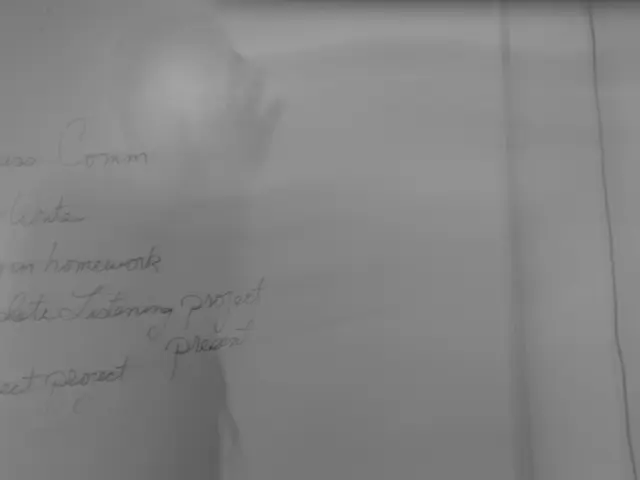Unleashing Commerce: Wolfgang Hattmannsdorfer's Plea for EU State Aid Reform
Economic Minister of Austria advocates for reform of EU assistance legislation
Austria's Minister of Economy, Wolfgang Hattmannsdorfer, has kicked off a call to arms for a revamp of EU state aid regulations. Emphasizing the need for investments in cutting-edge technologies, the conservative figure headed the charge on a Thursday battle-cry.
In the fiercely competitive automotive sector, Hattmannsdorfer envisions a future where every climate-friendly drive technology receives due investment. The current EU legal landscape, unfortunately, fails to fully endorse comprehensive promotion measures, as seen in the lack of backing for electric motors, for instance.
"If we aspire for versatility in our driving engines, we must be empowered to champion this variation," Hattmannsdorfer resoundingly declared. "It's absurd that we boost battery technology while castigating electric motors." This approach dissuades investments and subsequently weakens Europe's standing in the global market.
The ultimate aim must be to retool state aid regulations to address the hurdles of industrial policy and to furnish member states with greater leniency in pursuing strategic objectives.
For Austria, the automotive industry looms large—employing a significant portion of the populace and serving as an essential economic motor. Numerous suppliers manufacture specialized components and technologies, chiefly destined for export to Germany and other European territories.
The minister also took issue with the Euro's one-sided fleet targets, which he deemed unbalanced: "We cry out for technological neutrality rather than one-sided legislative shackles." Renewable fuels, too, should be recognized as vital components in the transitional landscape. "It's economic lunacy that European manufacturers are slapped with penalties, subsidizing Asian rivals."
Key Insights:
- EU State Aid Rules and Reform: The European Union employs various state aid rules to bolster investments in key technologies and climate-relevant energy systems. The Temporary Crisis and Transition Framework (TCTF) has been updated to aid member states in meeting their climate goals. Current reform proposals seek to enhance the application process, coordination, and transparency of these regulations.
- Criticisms of EU State Aid Regulations: As it stands, EU regulations do not provide adequate support for all climate-friendly drive technologies, such as electric motors. Critics argue that the proposed reforms do not go far enough in ensuring a robust, versatile, and competitive future.
- Europe's Commitment to Climate-Neutral Economy: The EU is keen on supporting clean energy initiatives, as seen in the approval of numerous state aid schemes for renewable hydrogen production. The EU's broader goal is to pave the way for a carbon-neutral economy.
(Sources: Reuters, Thomson Reuters, Enrichment Data)
Bonus Content: Eye on the Markets
*Do defense stocks have further latitude post-rally?
*Which crypto chart still promises potential?
These are the new favorites of Warren Buffett from Japan
You might find interesting:
- Rheinmetall stocks skyrocket above €1,700
- US auto industry slams Trump's UK deal
- US markets likely to start the day slightly higher, awaiting US-China talks
- Mercedes shareholders question luxury strategy
- Market Insights: Rheinmetall plunges after record hunt in the red - Also Renk and Hensoldt
- Wolfgang Hattmannsdorfer, Austria's Minister of Economy, advocates for reform of EU state aid regulations to spur investments in climate-friendly drive technologies.
- In the automotive sector, Hattmannsdorfer desires equal investment opportunities for all climate-friendly drive technologies, including electric motors.
- Achieving greater leniency in state aid regulations could address hurdles in industrial policy and position European member states more competitively in the global market.
- The automotive industry in Austria is significant, employing a large portion of the population and serving as a key economic motor, with numerous suppliers supplying specialized components and technologies for export.
- Hattmannsdorfer also criticizes the Euro's one-sided fleet targets, calling for technological neutrality rather than legislative shackles, and believes renewable fuels should be recognized as vital components in the transitional landscape.
- European manufacturers should not be penalized in comparison to Asian rivals for their investment in renewable fuels, according to Hattmannsdorfer.




